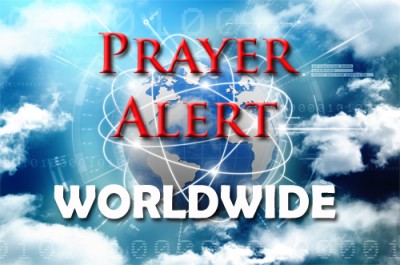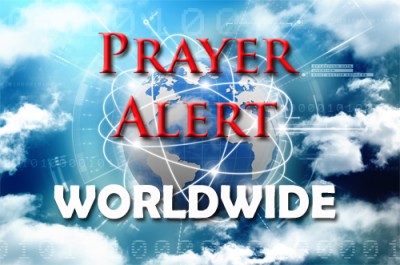Zimbabwe: 62 men saved as hanging is abolished
Sixty-two death row inmates in Zimbabwe could have their sentences commuted to life in prison when the government abolishes the death penalty in 2024. This was revealed after a cabinet meeting chaired by president Emmerson Mnangagwa on 6 February. The abolition is due to come into effect through a private member's bill. At present, the constitution states that the death penalty may be imposed only for murder committed under aggravating circumstances, and only on men aged between 21 to 70. The last inmates to be hanged were two notorious criminals in 2005. Zimbabwe at present does not even have a hangman, despite interest in the job by applicants in 2022, two of whom were women. As of last year, the death sentence was still used in thirty countries on the continent - but the death penalty has only been used regularly in fourteen of those. Capital punishment has now been abolished in 26 African countries.
Philippines: peace talks falter as conflict continues
Efforts to restart peace talks between the Philippine government and the communist New People’s Army have faltered as clashes continue. President Ferdinand Marcos Jr surprised many when he initiated talks, facilitated by the Norwegian government, with the National Democratic Front (NDF), the rebels’ political front. These resulted in an agreement in which both parties acknowledged the underlying grievances at the heart of the conflict and agreed to seek reforms. However, military operations persist, including airstrikes in December in Mindanao which killed nine alleged rebels. The conflict, spanning more than fifty years, has claimed more than 40,000 lives, peaking during the martial law era of Ferdinand Marcos Sr. Peace talks have repeatedly collapsed over the years.
USA: bipartisan immigration bills stalls
Joe Biden and Donald Trump are blaming each other for the stalling of a bipartisan immigration bill. Despite support from Democrats and Republicans, the measure has been rejected by Congress and faces growing opposition in the Senate. Biden accused Trump of exploiting the issue rather than solving it, while Trump's campaign blamed Biden's policies for chaos in American communities. The proposed bill aims to address the influx of undocumented immigrants at the southern border by allocating funds for border wall construction, expediting asylum decisions, limiting humanitarian parole, and expanding deportation authority. In addition to allocating $20bn for border funding, it includes major financial support for Ukraine and for Israel. Trump denounced the bill, claiming only ‘fools’ or ‘radical left Democrats’ would support it, and described his border policies as ‘the most secure in history’. The Republicans narrowly failed to impeach Biden's homeland security secretary, Alejandro Mayorkas, blaming him for the recent surge in illegal migration: see
Indonesia: one year since New Zealand pilot’s kidnapping
In Indonesia's West Papua, rebel leader Eganius Koyega's group kidnapped New Zealand pilot Phillip Mehrtens on 7 February 2023, demanding impossible conditions for his release. Koyega is a member of the West Papuan National Liberation Army (TPNPB), the armed wing of the Free Papua Movement, which seeks independence. Photos show Mehrtens growing thinner and more unkempt, most often surrounded by fighters armed with guns and bows and arrows. Koyega, known for brutal tactics, has so far evaded Indonesian soldiers despite clashes. TPNPB leaders are urging him to free him for humanity's sake. New Zealand's reluctance to negotiate directly complicates rescue efforts, while Indonesia's military-driven approach has proved ineffective.
Hollywood actress Danica McKellar shares her faith
Danica McKellar has shared her experience of reading the entire Bible in a year, expressing deep comfort and enjoyment. Despite difficult chapters like Job, she found solace in Scripture. McKellar highlighted themes of humility over ego, good versus evil, and God rewarding faithfulness. She used ‘The Bible Recap’ for her chronological journey through the Bible. Her experience led to a deeper understanding of life's approach based on humility, describing it as rewarding. McKellar, who openly embraces Christianity, finds discussing her faith natural and life-changing, aiming to share the beauty she found with others.
Israeli soldier rejected God then found Jesus
Tamir, an Israeli soldier and atheist, found solace in Jesus after a journey of self-discovery and spiritual questioning. Initially rejecting God, his search for meaning led him to explore various philosophies and arts, but he found no satisfaction. His military service, particularly in the despised military police, intensified his quest. Ironically, his duties led him to rediscover God through the Bible. Challenged by a Christian colleague, Tamir delved into the New Testament, reconciling it with the Old Testament, leading to his conversion to Christianity. He surrendered his life to Jesus as his Lord and Saviour and was born again. Today, Tamir teaches scriptures, both Old and New Testament, in Israel. He says, ‘God defeated me in the battle I challenged him to, but he made me the winner.'






